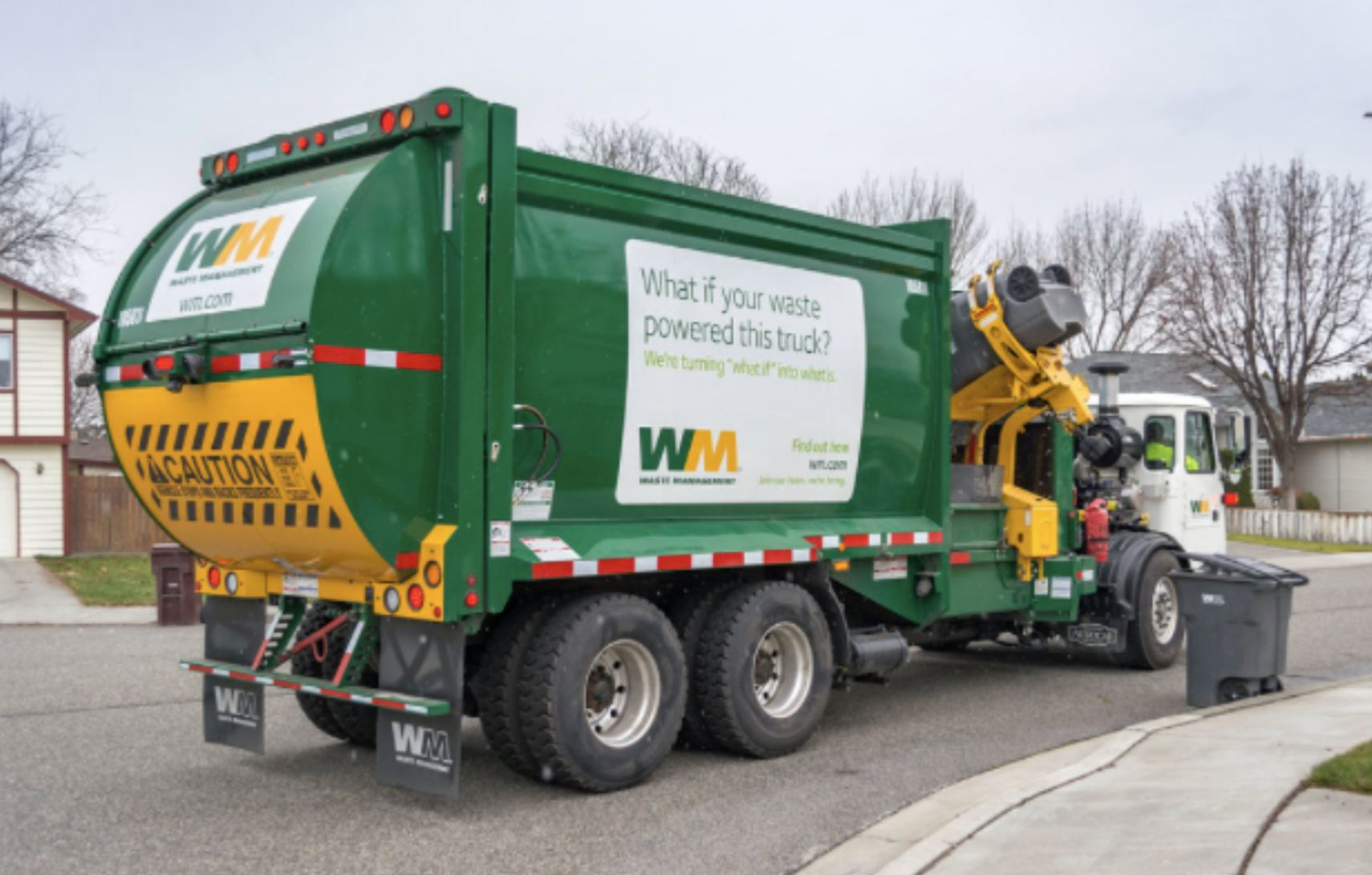Photo: Waste Management automated truck (credit: WM)
When the Belmont Solid Waste and Recycling Committee and representatives of the town’s Department of Public Works visited Waste Management’s Material Recycling Facility in Billerica in May – the place where your recycling goes – the group witnessed one of the bales of recycled material was audited for contaminates. That would demonstrate how careful Belmont households are in placing the proper materials in the 96-gallon barrels.
While most communities are in the 30 percent range – examples of contaminates from other towns include cider blocks, aluminum bats, and a boa constrictor thrown in recycling bins – Belmont is at seven percent. “We are one of the towns with the lowest contamination rates. Waste Management is very proud of that,” gushed Mahesh Jayakumar, the chair of the collection committee.
With Belmont being the ”gold standard” with its recyclables program and demonstrating a double-digit percentage reduction in trash collection in the past half-decade, “we are doing very well over the past five years,” Jay Marcotte, DPW director, told the Belmont Select Board during a presentation on the next five-year solid waste contract on Nov. 14.
It’s been since 2018 that the town signed its first contract with Waste Management – the largest US waste removal company with about a quarter the market – involving automated collection, with recyclables, are processed as a “single stream,” which allows residents to mix paper, cardboard, glass, and plastics.
Besides the automated collection of trash and recycling, the current contract includes picking up one “bulky” item a week, yard waste collection from April to December, Christmas tree removal for two week in January and a fee-based removal system for TVs and appliances.
| Category | Old Contract in FY ’18 | New Contract in FY ’22 |
| Trash | 7,326 tons or 1,465 lbs. per dwelling | 6,215 tons or 1,243 lbs. per dwelling |
| Recycling | 2,118 tones or 423 lbs. per dwelling | 3,209 tons or 642 lbs. per dwelling |
In the five years since the switch from manual to the automated collection, Belmont is a recycling juggernaut, increasing the amount it recycles by nearly 52 percent to about 642 lbs. per household – while other communities that also changed saw about half the gains. During the same time, the trash removed from Belmont dwellings has been reduced by 15 percent, double what other communities have seen. WM also removed an estimated 2,500 “ex”-Christmas trees and 3,200 “bulky” items.
Yet, while Belmont will receive a premium rate from WM for being a recycling-friendly community, the town can expect a steady increase in the price to remove trash in the coming five years. That’s because there is a Brave New World of recycling economics, so much so that “we have to pay for it, and it’s now more expensive than trash [removal],” said Marcotte.
The market changed radically in early 2018 when the Chinese government suddenly banned accepting recyclables from the rest of the world. Today, Belmont’s “recyclables are subject to market swings and commodity prices,” said Jayakumar. The recycling processing fee was affected the most, which increased from $45 per ton in fiscal year ’18 to $101 per ton in fiscal ’23. In the proposed contract extension, the processing fee will jump 36 percent to $137 per ton in fiscal ’25, with 3.5 percent increases in the remaining four years.
Belmont will also face two significant cost increases under the WM extension: a 23 percent jump in the prevailing wage for WM employees and annual inflation rates of eight-to-nine percent. To spread out expenses over the five years, the group has worked with WM on a plan which would see a 4.5 percent increase in the first year, fiscal ’24, with years two to five, increasing 3.6 percent annually.
In the proposed five-year WM contract, curbside collection expenses – which includes trash, recycling, and yard waste collection along with Christmas trees and bulky items – will increase from the current $2.449 million in fiscal ’23 to $2.948 million by fiscal ’28.
After reviewing the data, the committee recommended on Oct. 18 that the best option would be a five-year contract extension with WM. An extension will ensure no disruption in service for five years while providing a “reasonable rate” of increase given the expected elevated inflation.
While the Select Board decided to push back a vote on the recommendation to its Monday, Nov. 21 meeting, it appears ready to follow the advice of the Collection committee and DPW.








Leave a Review or Comment